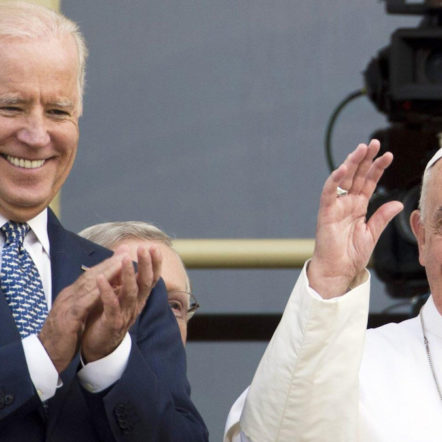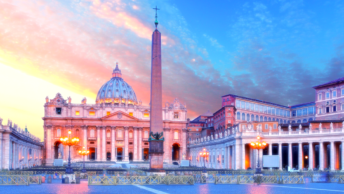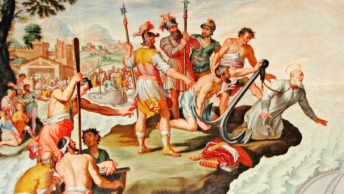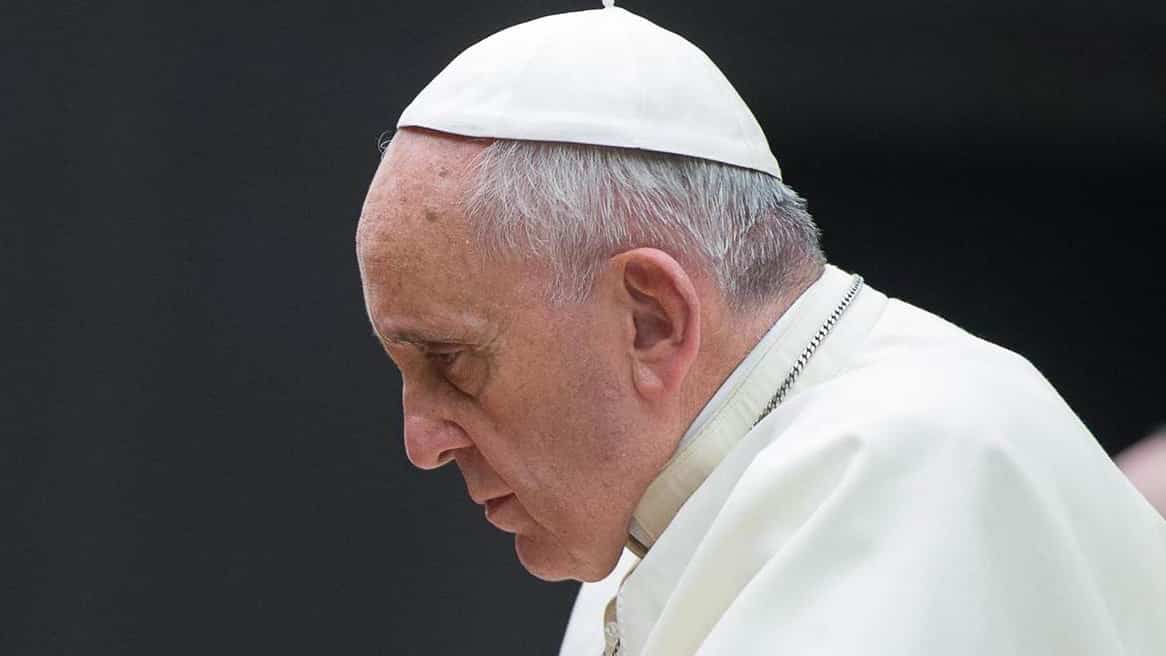On November 1, All Saints Day, the Catholic News Service reported on President Biden’s visit with Pope Francis. I’ll begin with a background note, then examine what the participants said about the meeting, and, finally, consider what message it sent to Catholics in America and people around the world.
Background: President Biden has been strongly criticized over his position on abortion. Originally pro-life, he rather suddenly became strongly pro-abortion without ever explaining the reason for the change. (See how his view changed.) Today he supports abortion “under any circumstances” including partial-birth abortion, and his legislative positions reflect that view. Because Biden’s publicly proclaimed policy directly contradicts Catholic teaching, a number of priests and some bishops have argued that he should be denied the Eucharist. In at least one case, he was actually denied it. During his visit to the Vatican, however, three Paulist priests concelebrated a Mass at which Biden received communion.
Biden’s statement after the meeting:
When asked by reporters whether he and the Pope discussed abortion, Biden responded, “We just talked about the fact he was happy that I was a good Catholic, and I should keep receiving Communion.” He then added, “There has always been this debate in the Catholic Church, going back to Pope John XXIII, that talks about how we reach out and embrace people with differences. If you notice what the pope said when he was asked, when he first got elected pope, he was traveling with the press and they said, ‘What’s your position on homosexuality?’ He said, ‘Who am I to judge?’”
Biden said further that the Pope “is a man who understands that part of his Christianity is to reach out and forgive. And so, I just find my relationship with him one that I personally take great solace in; he is a really, truly genuine, decent man.” He went on to note that when he became President, Francis called and told him “how much he appreciated the fact that I [Biden] would focus on the poor and focus on the needs of people who are in trouble.”
Finally, Biden noted that much of his discussion with Francis was “personal” and therefore could not be discussed. He concluded by saying Francis embodies “everything I learned about Catholicism from the time I was a kid going through grade school, through high school . . . [He is] just a fine, decent, honorable man, and we keep in touch.”
Francis’ statement after the meeting: Pope Francis offered no public statement about the meeting. Not a sentence. Not a syllable. And Vatican spokesmen said only that it was “private.”
Given the background facts noted above and the fact that Biden explained the meeting and Francis did not offer a different account, two important conclusions can be drawn:
1) Francis approved Biden’s receiving communion at the Vatican Mass. As the Roman Pontiff, if Francis didn’t want communion to be offered, he would have told Biden, “Because the issue of your receiving communion has not yet been addressed by the American bishops as a whole, I would rather you not receive at this time, particularly in the Vatican, lest the faithful be confused and the bishops be discouraged from conducting their own theological inquiry.” But we don’t need to guess about whether or not Francis approved of Biden receiving communion—he previously said that the Eucharist should not be used as a “weapon” and that Biden should not be denied it.
2) Francis had no serious disagreement with Biden’s explanation of the meeting. My reasoning: Whenever one of two participants in a meeting comments on the meeting and the other participant remains silent, the logical implication is that the latter agrees with what was said. (The seal of confession is not an issue in this case. Not only is there no indication that Francis heard Biden’s confession; Biden’s public statement about the meeting did not concern sin or absolution.)
At first thought, Francis’ silence about and implied endorsement of Biden’s statement to the press is merely curious. But on closer consideration it is downright shocking. That silence suggests that Francis did say he was “happy that [Biden]was a good Catholic, and [thus] should keep receiving Communion.” And that, in turn, suggests that Francis believes that Biden’s authorization of policies supporting all abortions is neither scandalous nor sinful.
Francis’ silence also validates Biden’s assumption that his (Francis’) well-known statement “who am I to judge” applies to abortion as well as to homosexuality. Similarly, it validates Biden’s notion that because Christianity in principle demands forgiveness, Francis must forgive whatever Biden has done or continues to do (such as approving abortion) without Biden admitting is sinful, asking for forgiveness, or expressing a firm purpose of amendment. Such a “deal,” of course would be theologically absurd. And yet Francis’ silence affirms it.
Finally, Francis’ silence validates Biden’s assertion that Francis phoned him after he was elected and expressed “how much he appreciated the fact that [Biden] would focus on the poor and focus on the needs of people who are in trouble.” Keep in mind that there is no room for disagreement about what Biden’s focus would be—he announced it before he took office. He would tear down Trump’s wall and open the southern U.S. border. Some might argue that when Francis expressed his “appreciation,” he didn’t realize how great the resulting flow of illegal immigration would be or how much havoc it would cause. But even if we accept that charitable speculation, it doesn’t explain why, the better part of a year later, Francis would pass up the opportunity to acknowledge the havoc that resulted at the border but instead remain silent.
It has been clear to observant Americans for many months that the Biden presidency has been in shambles since the beginning. The harm he has done since his inauguration is so great that it threatens to bring down the strongest democracy on the planet and thereby devastate the economies of rich and poor nations alike. The recent visit of President Biden to Rome was, I believe, a heaven-sent opportunity for Pope Francis to deliver a counsel of wisdom and moral insight first to Biden and then publicly to the world. Why he chose to ignore that opportunity will no doubt baffle historians for decades if not centuries.
Copyright © 2021 by Vincent Ryan Ruggiero. All rights reserved







